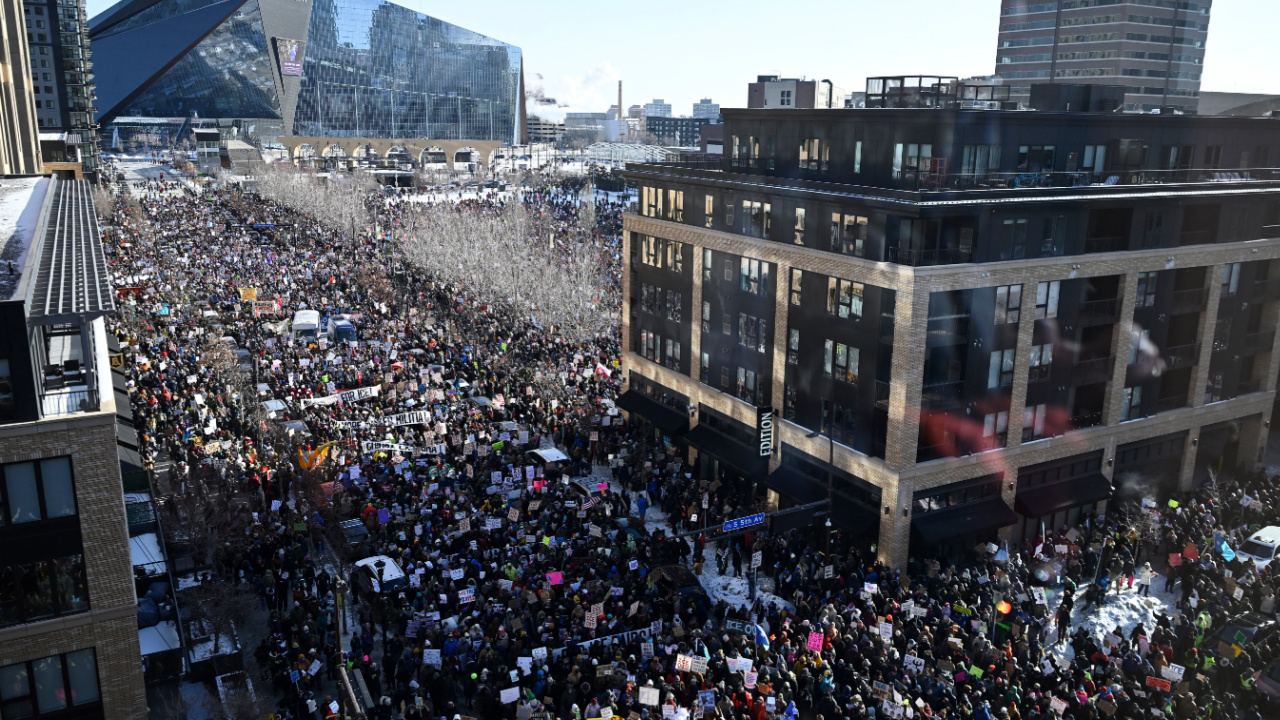
The Gulf of Mexico Is Now the Gulf of America (Kind of). So… Now What?
If you woke up this morning wondering whether the Gulf of Mexico just became the “Gulf of America,” you’re not alone. After all, the U.S. House of Representatives just passed a bill to make that real—kind of.
The Republican-led bill, introduced by Rep. Marjorie Taylor Greene and backed by Speaker Mike Johnson, passed 211-206 and now heads to the Senate. It’s meant to codify Donald Trump’s executive order from January that renamed the Gulf of Mexico. But the bill—like the rebrand—has stirred more eye-rolls than enthusiasm, and for good reason: What does this actually do?
Let’s break it down.
The Gulf of Mexico renaming is performative—unless you’re printing maps
According to CNN, the bill would force federal agencies to scrub “Gulf of Mexico” from all government documents and replace it with “Gulf of America.” Agencies would have 180 days to update maps, signs, websites, and other federal records. The Congressional Budget Office estimates it could cost under $500,000 to implement the change across federal systems.
But the implications don’t stop there. As CBS News pointed out, local libraries, schools, and municipalities would be on the hook for updating materials, too. “If a school district can’t afford to purchase an entirely new map, you know what? A sticker would do,” said Rep. Michelle Fischbach, a Minnesota Republican, earlier this week.
Still, other countries aren’t recognizing the name change, and the rest of the world is likely to keep calling it what it’s always been: the Gulf of Mexico.
The Gulf of Mexico isn’t just symbolic—there are real stakes
The Gulf is a vital economic artery. It supports major ports, energy infrastructure, and fisheries across five U.S. states and borders Mexico and Cuba. That’s why Mexico’s President Claudia Sheinbaum has pushed back hard, calling the renaming “provocative” and threatening legal action against Google for switching the name on its maps, according to USA Today.
As Newsweek reported, Trump’s executive order applies only to the U.S. portion of the continental shelf—essentially the area stretching from Texas to Florida. In other words, this isn’t an international decree. It’s branding.
Is the Gulf of Mexico renaming about pride or distraction?
Supporters say this is about asserting American influence over waters that U.S. forces protect. “It’s OUR gulf,” Greene posted on X. Speaker Mike Johnson argued that codifying the executive order into law makes it permanent, shielding it from reversal by a future president.
But critics across the aisle are calling the move unserious. “It’s juvenile,” said Rep. Don Bacon of Nebraska—the only Republican to vote no. “We’re not Kaiser Wilhelm’s Germany or Napoleon’s France.”
House Democrats were even less subtle. Rep. Mary Gay Scanlon said it “may be the dumbest bill brought to the floor” since she entered Congress. Rep. Jared Huffman called it “deeply unserious.” Rep. Maxwell Frost of Florida summed it up: “The rest of the world is going to call it the Gulf of Mexico.”
The Senate probably won’t pass it—and even if it does, it won’t matter much abroad
The bill would need 60 votes in the Senate to become law. That means at least seven Democrats would need to get on board, which seems highly unlikely. As Senate Majority Leader John Thune told CBS News, “I haven’t thought that far ahead.”
Even if the Senate did pass it, other countries can—and will—ignore the change. As Politico pointed out, the bill is really about codifying a name used inside U.S. agencies. It doesn’t rewrite global consensus or diplomatic norms.
And then there’s the First Amendment lawsuit: the White House had barred Associated Press reporters from covering events after the outlet refused to refer to the body of water as “Gulf of America.” A federal judge ruled the exclusion unconstitutional and restored access.
What comes next?
The Senate may or may not vote on the bill. Trump, meanwhile, has hinted he wants to rename the Persian Gulf next, calling it the “Arabian Gulf,” according to CNN. That could spark even more international backlash—and confusion.
For now, your Gulf Coast vacation probably won’t change. The beaches are still there. The waters are still warm. The only thing up for debate? What we’re all calling it.




